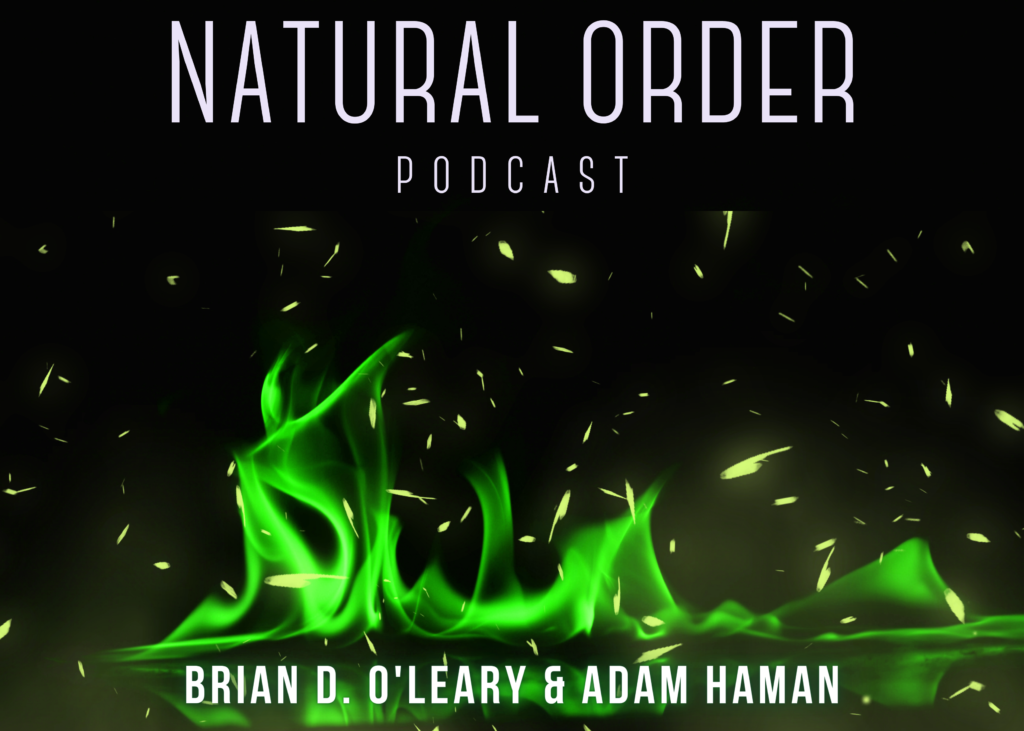Episode 3 - Methodology matters ... & the other guys are doing it wrong
Austrian Economics
Hosts Brian O’Leary and Adam Haman discuss Austrian Economics, another one of the “four pillars” holding up the Natural Order Podcast.
Why is the Austrian School right? And where do the Keynesians, Neo-classicists, Monetarists, and calculus-worshiping wonks go wrong?
Today’s show brought to you by Liberty Classroom
Austrian Economics: Methodology matters, and the other guys are doing it wrong.
“The curious task…
…of economics is to demonstrate to men how little they really know about what they imagine they can design. To the naive mind that can conceive of order only as the product of deliberate arrangement, it may seem absurd that in complex conditions order, and adaptation to the unknown, can be achieved more effectively by decentralizing decisions and that a division of authority will actually extend the possibility of overall order. Yet that decentralization actually leads to more information being taken into account.”
– Friedrich Hayek, The Fatal Conceit: The Errors of Socialism
The Austrian School: Why is it different? Why is it correct?
Economics isn’t a “hard science”, like chemistry or physics. As a discipline, it is more akin to philosophy, or perhaps even mathematics.
There exist several different economic theories and many schools of thought—all generally incompatible with each other—that are “unfalsifiable.” Unlike hard sciences, the subject of economics is people. Experiments can’t truly be done because of the free will inherent to the subjects. Thus, a counterfactual is technically impossible. One cannot repeat the experiment with all relevant factors remaining the same.
This is why “facts” never seem to settle disputes between Keynesians and Monetarists, or Neoclassicals and MMTers, or Austrians and…everybody. No matter how hard Ben Bernanke or Ben Powell fail, they can always say, “Yeah, but it would have been worse had we not intervened.”
The roots of Austrian economics were first established in the School of Salamanca. This Spanish school of thought brought together followers of St. Thomas Aquinas and others where they sought to explain the full range of human action and social organization. The Salamancan methodology posited the existence of economic laws, much like other natural laws, and sought to discover the nature of these laws.
This “Late Scholastic” tradition progressed in many places in Europe (notably France), competing with other theories that typically gave intellectual cover for the government to boss people around.
Austrian economics gets its name largely because, in 1871, an Austrian named Carl Menger resurrected these Scholastic/French (hat tip to Frederic Bastiat) threads. He then added explicit subjectivism, gave a groundbreaking theory of the origin of money, and fully explained (for the first time in known human history) the theory of marginal utility, which ushered in the “marginal revolution” in economics.
This was huge, solving the perplexing diamond/water paradox, and helping smash the labor theory of value in the process.
It also helped that many other big names in this new “school” were from Austria (Menger, Mises, Hayek, Böhm-Bawerk, etc).
The Austrian approach: Methodological Individualism, methodological subjectivism.
What falls out of this approach are a few critical things, including:
- the subjective theory of value (vs. the labor theory, for example)
- opportunity costs
- marginalism
- the time structure of production and consumption
- unique
- price theory
- capital theory
- interest theory
- (in the modern era, at least) a unique theory of inflation,
Mises named this approach “Praxeology.” He said we can deduce powerful and profound economic truths from simple and self-evidently true a priori statements like “Man acts.”
See? Economics is much more correctly viewed as part of philosophy. It’s more like geometry than fluid dynamics or some other hard science.
Most economists pretend they are hard scientists. They are delusional. They’re doing it wrong. They are ideologues pretending to be technicians.
Big contributions:
The Austrian school led the marginal revolution, the economic calculation problem (both Hayek’s version and Mises’s version), the theory of the business cycle, price theory, capital theory, interest theory, focus on entrepreneurship as a critical discovery process, etc.
The approach of the other schools: They use complex models and math to obfuscate what should be their central focus: human action. A cynic might be forgiven for concluding that most economic theories and analyses are merely offered as intellectual cover for government to tax and spend and “regulate.”
The Mises Institute…
… is a paragon of knowledge and virtue. At mises.org, you will find an absolute treasure trove of books, articles, podcasts, lectures, entire academic courses—all about Austrian economics. Check it out!
Learn economics via… rap battles?
Yes! Check out these two videos. They are amazing!
Adam’s “other” gig:
The Nevada Libertarian Party Presents: The Battleborn Podcast
Co-hosted by fellow Nevadan Randy Sadac, the LPNV’s Battleborn podcast features commentary about goings on in Nevada from a liberty perspective. Here you can find some great interviews with people doing great things to advance liberty in the state of Nevada, and beyond.
Don’t miss their great interview with Economist (and libertarian superhero) Bob Murphy!
Randy and Adam Interview Robert Murphy
Brian’s empire of great content:
BrianDOLeary.com
Where you’ll find all of the interesting things Brian is up to, including
- The O’Leary Review – Writing and associated Podcast
- The Brian D. O’Leary Show
- Who Is In The Tom Woods World?
- and more.
While you’re there, don’t forget to buy Brian a coffee. He’ll greatly appreciate it, especially a darker roast.
O’Leary Digital
Having problems with getting that podcast off the ground?
Trouble coming up with an idea on what to talk/write about?
Have no clue what equipment or services to use?
We might be able to help you.










